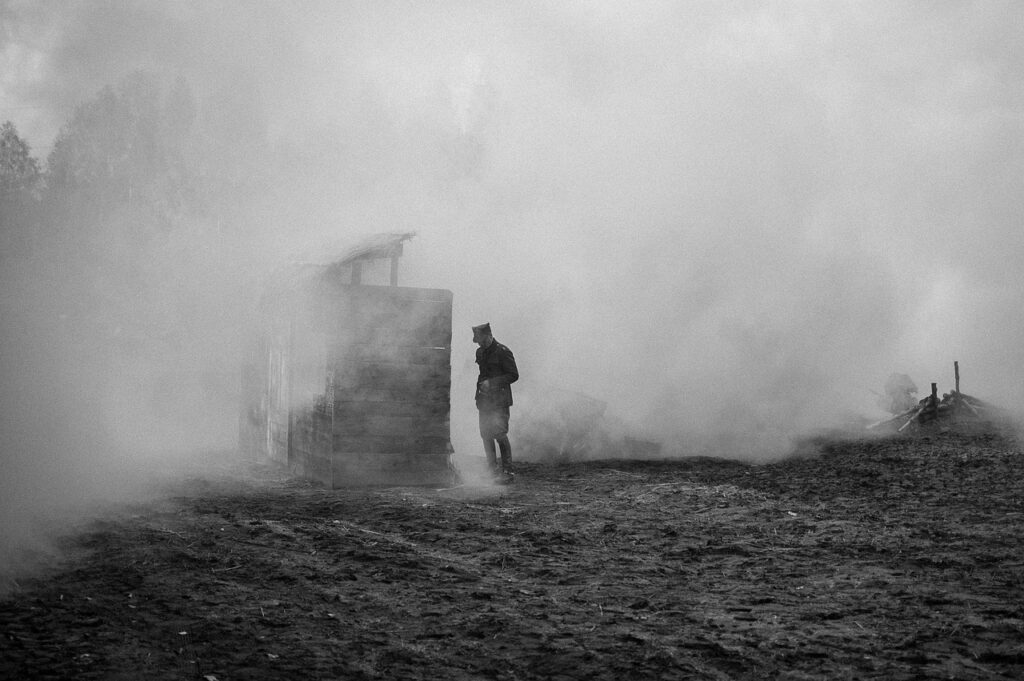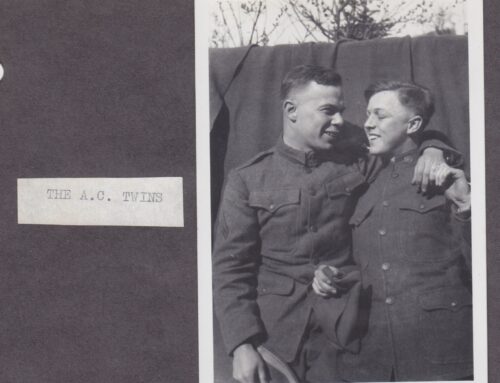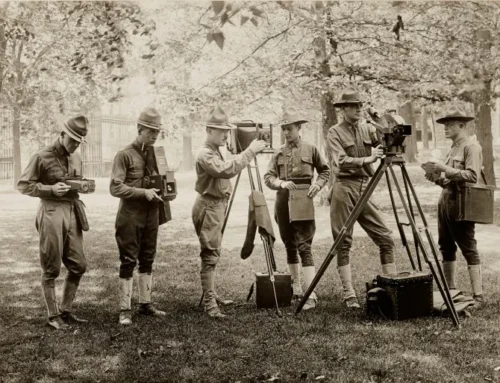The Psychology of Leaving: What WWI Taught Us About Moving Without Closure
Published: 20 June 2025
By Dorothy Abercrombie
Special to the Doughboy Foundation website

The Psychology of Leaving What WWI Taught Us About Moving Without Closure
Who cares anyway?
The psychology of leaving explores how people handle sudden departures, both emotionally and mentally. During World War I, millions left home without proper goodbyes or clear expectations. Families were often left waiting, unsure if they would see their loved ones again. These unresolved separations left deep emotional scars. Today, many still face similar exits—fast, incomplete, and without closure. By looking back at WWI, we can better understand how sudden endings affect us and how to move forward without resolution.
War and Goodbye: Departing in Uncertainty
When soldiers left for World War I, most had no idea when—or if—they would return. Many boarded trains without time for a proper farewell, while families stood by in silence, unsure how to say goodbye. The sudden departure created emotional gaps that would never fully close. Fear, confusion, and unfinished words lingered. For many, this marked the start of lifelong emotional wounds.
As we all know, WWI changed humanity in ways that extended beyond politics and battle tactics—it redefined how people experienced separation and uncertainty. Leaving home became not just a physical act but an emotional rupture. Without closure, grief became more complex and long-lasting, deeply affecting both those who left and those who stayed.
The Psychology of Leaving Under Pressure
Leaving under pressure triggers fear, confusion, and emotional disconnection. During World War I, many had to abandon their homes and routines within hours. There was little time to process what was happening. This shock disrupted mental stability and caused lasting stress. The brain struggles to make sense of abrupt change, often responding with denial or anxiety.
Today, people still face rushed exits through layoffs, health crises, or emergencies. These situations leave no space for emotional readiness. Rushed departures often result in unresolved feelings, making recovery harder and increasing the risk of emotional detachment or long-term distress.
Moving On Short Notice: The Shock of Departure
During WWI, soldiers were often told to report for duty with only hours to prepare. There was no time to pack, plan, or say proper goodbyes. Families were left behind in emotional limbo, unsure of what had just happened. The suddenness of these departures caused long-term emotional strain.
In modern times, people still experience this, whether due to sudden job changes, evictions, or emergencies. While short-notice relocation hacks offer practical tips for moving in a week or less, emotional readiness remains harder to manage. The shock of leaving without warning leaves people mentally scattered. The mind needs time to adjust, and when it doesn’t get that, stress often follows.
Closure Denied: The Lingering Effects of Silence
Many WWI families never received confirmation of their loved ones’ fate. Letters stopped arriving. Graves were never found. The silence was louder than any explosion. Without answers, grief could not move forward. For years, mothers, wives, and children waited for news that never came. This emotional uncertainty froze healing.
During the US participation in WWI, thousands of soldiers vanished without a trace, leaving families trapped in a cycle of hope and despair. The lack of closure caused deep psychological scars. When we don’t know how a story ends, our minds keep writing painful versions of it, over and over.
Letters That Never Came: The Role of Communication
In WWI, letters were often the only connection between soldiers and their families. These messages offered hope, love, and a sense of presence. When they stopped, the silence became unbearable. People feared the worst but had no way to confirm it. Missed letters led to confusion, anger, and prolonged grief.
For American women in WWI, especially nurses and volunteers, the lack of communication added to emotional strain as they balanced caregiving and waiting. Reliable contact helps us feel grounded. Without it, people feel lost, abandoned, and unable to process what’s happening around them—or what may have already ended.
The Psychology of Leaving in Today’s World
Today, people leave jobs, homes, and relationships faster than ever. Moves happen with little warning or preparation. This constant motion affects emotional health. The psychology of leaving explains why sudden transitions often feel unfinished. Without time to reflect, people carry unresolved feelings into the next phase. Anxiety, regret, and disconnection are common.
Unlike in the past, we now change environments more frequently, but the emotional toll remains. Many still struggle to say goodbye properly. Whether it’s moving cities or ending a friendship, leaving without closure can leave us feeling stuck, even as we move forward physically. Emotional readiness still matters.
Rebuilding Without Goodbye: How People Adapt
After WWI, many had to rebuild their lives without final words or farewells. Homes were empty, answers were missing, and grief had no clear path. Yet people found ways to keep going. They created meaning through stories, rituals, and community support. Symbolic acts—memorials, letters never sent, silent toasts—offered emotional release.
Humans can’t always get closure, but we can shape our version of it. Even without a goodbye, people learn to adapt. They find strength in routine, connection, and memory. Accepting what can’t be changed helps begin the healing. Moving forward doesn’t erase pain, but it helps manage it.
Lessons We Still Carry from WWI
World War I left more than physical scars—it reshaped how we handle separation, loss, and uncertain endings. The war taught us that going without closure leaves emotional wounds that don’t fade easily. Even today, we repeat these patterns in quick exits, missed farewells, or sudden goodbyes. Understanding the psychology of leaving helps us see why these experiences stay with us. WWI showed the danger of silence, the weight of unspoken words, and the importance of connection.
Healing doesn’t require perfect endings, but it does need acknowledgment. When we face sudden change today, remembering these lessons helps. Whether it’s a move, loss, or breakup, we can support each other better by recognizing the emotional cost of departures, even when they seem routine.
Moving Forward Without All the Answers
World War I revealed how deeply sudden departures affect us, then and now. The psychology of leaving helps explain why unresolved exits leave lasting emotional marks. From the trenches to today’s rushed transitions, closure remains rare, but healing is still possible. When we understand the emotional cost of leaving without a goodbye, we learn to move forward with more awareness, compassion, and strength—even when full resolution never comes.
Dorothy Abercrombie is a writer and historical researcher specializing in trauma, memory, and wartime psychology. She explores how past conflicts shape modern emotional experiences, with a focus on human resilience through change.
External Web Site Notice: This page contains information directly presented from an external source. The terms and conditions of this page may not be the same as those of this website. Click here to read the full disclaimer notice for external web sites. Thank you.




